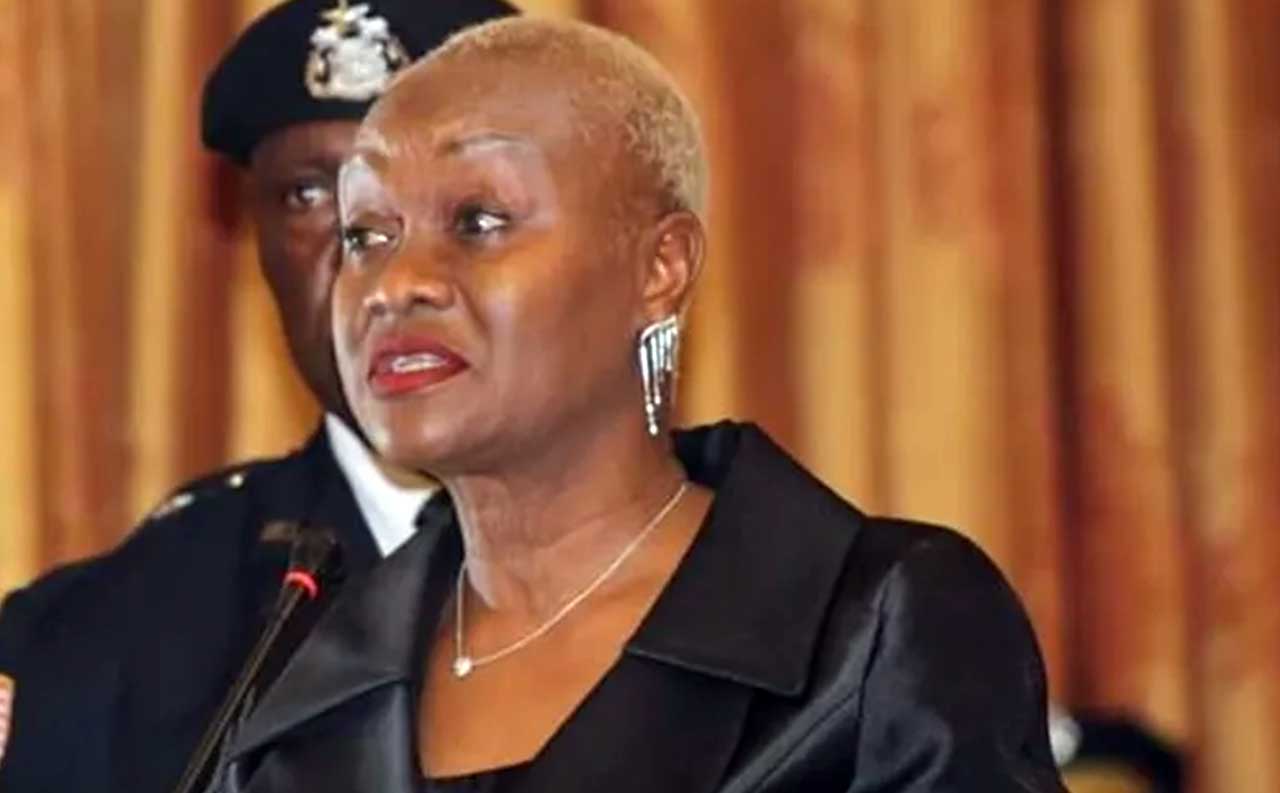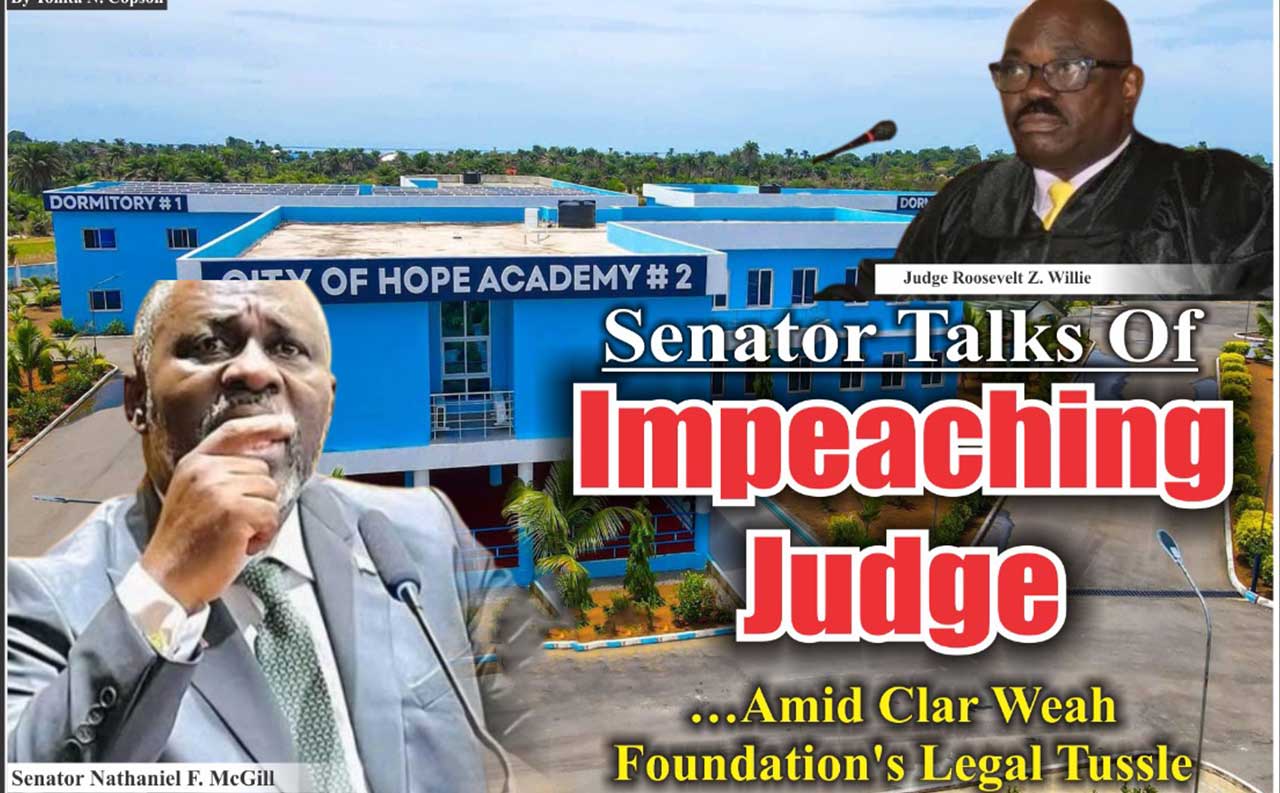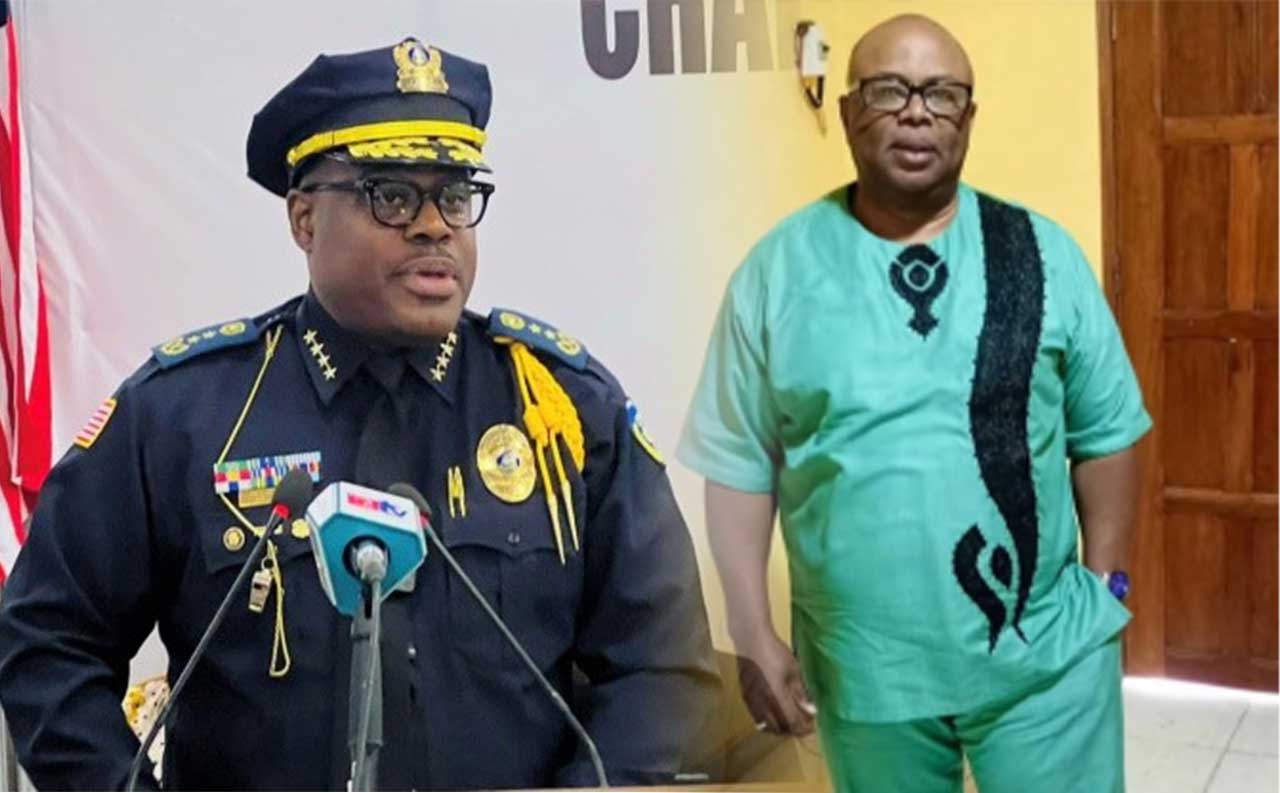Former Chief Justice of the Supreme Court Of Liberia Sie-A-Nyene G. Yuoh has emphasized that the Judiciary is a ‘Guardian of Justice’ and must not be used as political pawn. Her step-down from the Liberia’s Supreme Court on Friday, August 15, 2025, closed a chapter defined by resilience, reform, and unwavering fidelity to the 1986 Constitution of Liberia. Speaking at her retirement ceremony, Yuoh emphasized that “the Judiciary is not a political tool but a guardian of justice for all Liberians.” Yuoh reflected on her tenure with poise and gravitas, recalling the turbulent 2023 elections, during which the Supreme Court provided stability amid the transfer of power between the Congress for Democratic Change (CDC) and the Unity Party (UP).
“Through it all, the law remained constant the law remains the law, no matter what changes occur in government,” she said. She emphasized the importance of judicial independence, the rule of law, and the continued strengthening of Liberia’s democratic institutions. “We must remain steadfast in our duty to uphold the Constitution, regardless of the shifting winds of political favor,” Justice Yuoh stated, while describing her rise to Chief Justice as a defining moment, having assumed leadership during one of Liberia’s most politically charged election periods.
Yuoh praised her colleagues on the Supreme Court Bench for their dedication to upholding the rule of law and thanked them for their support throughout her tenure. Appointed Associate Justice in 2013, Yuoh ascended to the position of Chief Justice in 2022 under President George Weah’s administration. She is the second woman to serve as Liberia’s Chief Justice and the third woman in the Court’s history.
She retires after nearly 12 years on the bench, having reached the constitutional age limit of 70. Her farewell address was both reflective and deeply personal. Citing Psalm 18:29, Yuoh shared that her guiding principle has been a desire to “be hidden in the secret place of the Most High,” signaling her wish to retreat to a quieter life with her grandchildren. Today, we do not simply mark an end, but a continuation of the ideals that bind us as a nation of laws,” she stated. “Let us remember that the Judiciary must remain an impartial guardian of justice, committed to serving all Liberians regardless of power or position.”
Reflecting on her career, the Chief Justice described her departure not as an ending but as “the end of the beginning” of her tenure in public service. She recounted the pivotal moments in her judicial career, particularly her leadership during the turbulent 2023 elections that saw a transfer of power between the Congress for Democratic Change (CDC) and the Unity Party (UP). “Elections are not ordinary events. During these times, even the subtlest of spirits become activated,” she said. “But through it all, the law remained constant the law remains the law, no matter what changes occur in government.”
The then outgoing Chief Justice emphasized that the judiciary had weathered political storms by remaining anchored in constitutional fidelity, describing the Supreme Court as “the keeper of the law at all times and nothing else.” She cited Psalm 18:29: “By thee I have run through a troop, and by my God I have leaped over a wall” as a verse that guided her through challenges on the bench. Meanwhile, the incoming Chief Justice, Yamie Gbeisay, brings with him years of legal experience and judicial service, having previously served as an Associate Justice of the Supreme Court.
Known for his deep legal acumen and measured judicial temperament, Justice Gbeisay pledged to uphold the Constitution, protect judicial independence, and pursue reforms that ensure equitable access to justice. In a personal reflection, Justice Gbeisay recalled first encountering Yuoh as a young law student in the 1990s when he observed her argue a case with remarkable skill and composure.
“I left that courtroom saying to myself: wow! this is the kind of lawyer I want to be,” he recounted. “That impression stayed with me, and today, standing here, it feels as though it happened just yesterday.” He described Yuoh as a vibrant and social person who moved gracefully from one role to another while always leaving an impact. “Chief Justice Yuoh, you are a fun-loving person, but beyond that, you have made a great impact on society,” he said. “You did what was required of you and you did it well.”
Looking forward, Justice Gbeisay expressed hope that Yuoh would embrace retirement with the same energy she brought to the bench, encouraging her not to retreat from social life. “Leave a little time for the railways and the dancing you love so much,” he quipped, adding that the judiciary would continue to draw inspiration from her legacy.
“As you embark on this new chapter, know that you have set a standard for leadership and service,” Gbeisay concluded. “Your life is a path well-trodden, and I am honored to follow in your footsteps.” For her part, Senior Associate Justice Jamesetta Howard Wolokolie praised Youh’s efforts in combating judicial inefficiency and championing financial autonomy.
Thank you, Chief Justice. Because of your courage and insistence, you left a blueprint for the judiciary’s growth,” Wolokolie said, pointing to the five-year strategic development plan crafted under Yuoh’s leadership. “It is a masterpiece which, if followed by your successor, will build a proud, strong, and respectable judiciary.” Wolokolie commended Yuoh’s role in mentoring lawyers through stern lectures and disciplinary fines, which she said helped improve the quality of legal practice before the Supreme Court.
“You are not leaving the judiciary without guidance. Your leadership has impacted not just the bench but the entire legal community,” Wolokolie concluded. “You are not old, Chief Justice — you still have much to give, and we expect you to continue impacting society.” Meanwhile, Justice Yussif D. Kaba highlighted the former Chief Justice’s persistence in strengthening case management and securing increased budgetary support, while Justice Ceaineh D. Clinton-Johnson lauded her meticulous rulings and resilience, describing Yuoh as “a remarkable woman who stood tall in guiding the Court through some of its most trying times.”
Chief Justice Yuoh’s retirement marks the end of an era, leaving a legacy of resilience, reform, and steadfast adherence to the Constitution. Her successor inherits a judiciary facing formidable expectations: clearing case backlogs, enhancing transparency, and deepening public confidence in Liberia’s courts. The ceremony concluded with a symbolic passing of the gavel, marking the peaceful and orderly transfer of judicial leadership.
The transition is seemed as a testament to Liberia’s growing democratic maturity and a reflection of its commitment to constitutional governance. As Liberia moves forward, the Judiciary under Chief Justice Gbeisay’s stewardship faces high expectations, from addressing case backlogs and enhancing judicial transparency, to strengthening public confidence in the courts.
The retirement, mandated under Article 72(b) of the 1986 Liberian Constitution requiring judges and justices to step down at the age of 70, marks the end of a judicial journey that began in April 2013 with her appointment as Associate Justice. The grounds of the Temple of Justice was a scene of attraction filled with Liberia’s legal practitioners, including members of the Liberian National Bar Association, the Association of Female Lawyers of Liberia (AFELL), Trial Judges, Public Defenders, Civil Society Representatives, Senators and diplomats, to witness the stepping down of Youh as Chief Justice. However, the absence of several top government officials, including the Minister of Justice, the Speaker of the House, and the Senate Pro Tempore, sparked speculation about political tensions among the country’s three branches of government.



